
Catch up on the top radiology content of the past week.
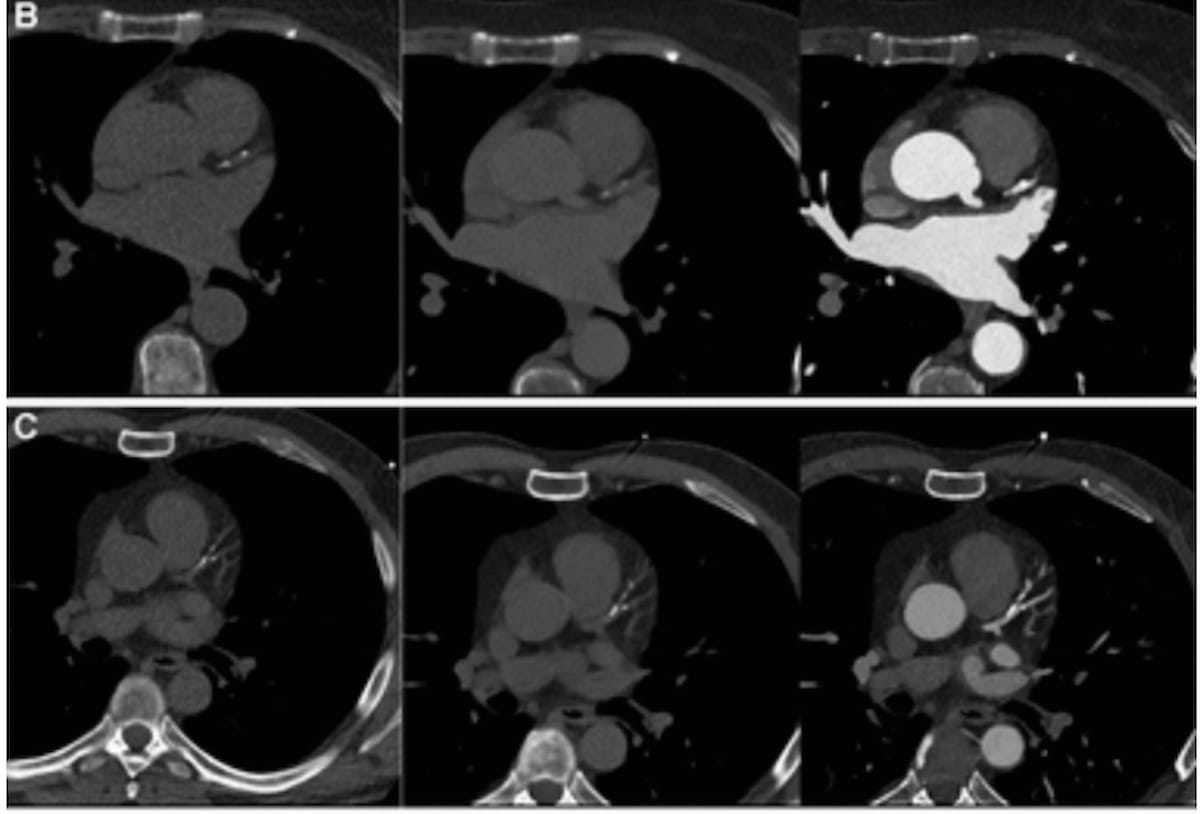

Catch up on the top radiology content of the past week.
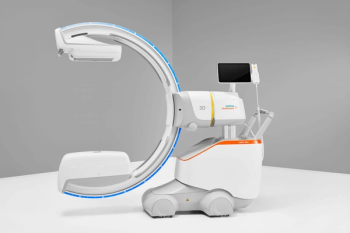
Offering ease of mobility and self-driving capabilities, the Ciartic Move C-arm device reportedly reduces the stress and potential for error associated with manual repositioning during intraoperative imaging with computed tomography and fluoroscopy.
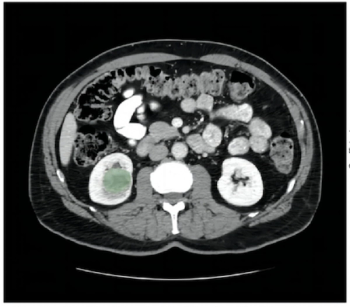
Emerging research suggests that a computed tomography (CT)-based radiomics model can predict FOXM1 expression and is independently prognostic for clear cell renal cell carcinoma.
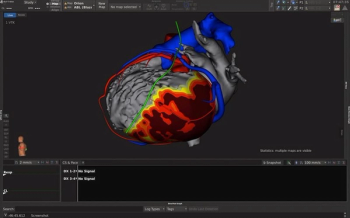
Three-dimensional interactive heart models created with AI-enabled segmentation of CT scans may reduce ventricular tachycardia ablation procedure times by 60 percent.

Catch up on the top radiology content of the past week.
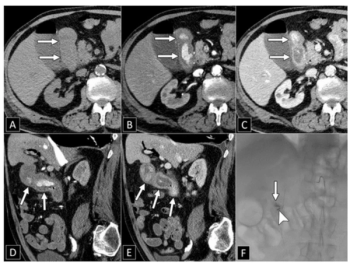
In joint consensus recommendations issued from the Society of Abdominal Radiology and the American College of Gastroenterology, researchers discussed key pearls, benefits, and limitations of CT angiography for imaging of overt lower GI bleeding and CT enterography for detecting small bowel bleeding.
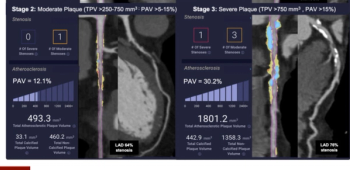
Employing quantitative computed tomography, the staging system’s insights on stenosis, ischemia and coronary atherosclerosis may facilitate individualized assessments of heart disease risk.
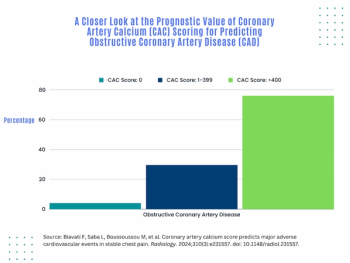
Computed tomography (CT) findings from over 1,700 patients with stable chest pain reveal that coronary artery calcium (CAC) scores of 0 are associated with a 4.1 percent prevalence of obstructive coronary artery disease (CAD) whereas CAC scores of 400 or higher are linked to a 76.1 percent incidence of obstructive CAD, according to research from a multinational study.
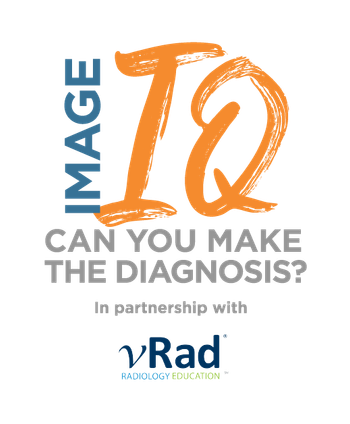
Review the case and test your knowledge to make the correct diagnosis.
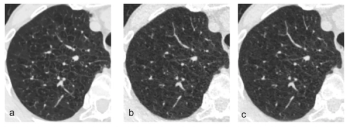
In comparison to standard-dose lung CT, the combination of deep learning image reconstruction with ultra-low-dose CT offered similar detection and characterization of pulmonary nodules at a nearly 93 percent reduction of radiation dosing, according to new research.
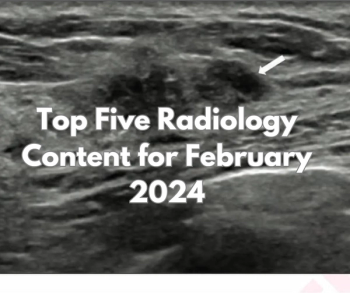
Catch up on the most-well viewed radiology content in February 2024.

Catch up on the top AI-related news and research in radiology over the past month.
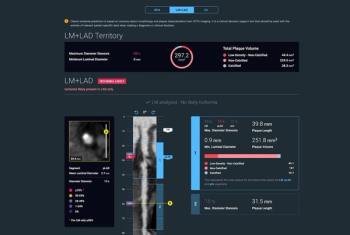
Clinicians can bill Category 1 CPT Code 75580 for adjunctive use of the artificial intelligence (AI)-powered Cleerly Ischemia software for fractional flow reserve estimates based on coronary computed tomography angiography (CCTA) scans.

Catch up on the top radiology content of the past week.
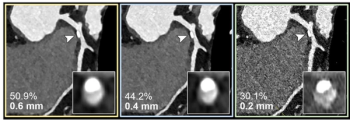
The use of ultrahigh spatial resolution with photon-counting CT led to lower Coronary Artery Disease Reporting and Data System (CAD-RADS) category assessments in over 54 percent of patients in comparison to the use of standard spatial resolution, according to recently published research.

Review the case and test your knowledge to make the correct diagnosis.
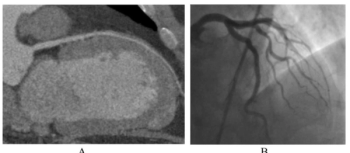
Patients who had CT angiography procedures reported lower pain levels, better preparation and were 25 percent more willing to undergo the procedure again in comparison to patients who had invasive coronary angiography, according to newly published research.
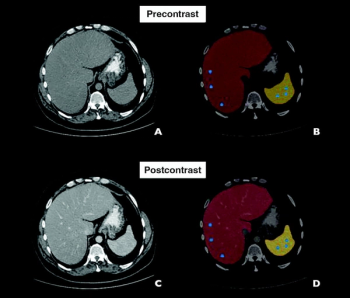
The AI-enabled HealthFLD software demonstrated a 77.8 percent sensitivity rate and a 93.2 percent specificity rate for diagnosing moderate hepatic steatosis on contrast-enhanced CT scans in a recent study of over 2,900 patients.
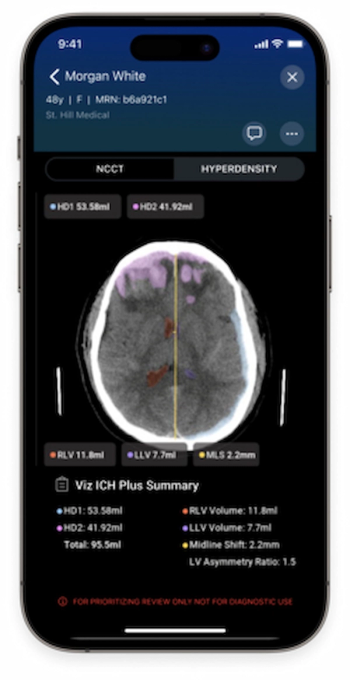
Facilitating timely diagnosis and intervention for brain bleeds, the artificial intelligence (AI)-powered Viz ICH Plus software may provide quantified assessment for intracranial hyperdensities, lateral ventricles and midline shifts.

Catch up on the top radiology content of the past week.
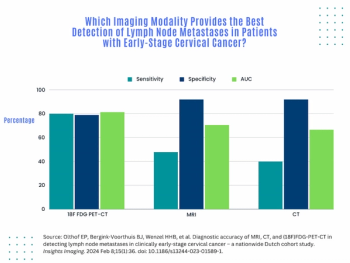
For the detection of nodal metastases in patients with early-stage cervical cancer, 18F FDG PET-CT offered a sensitivity rate that was double that of CT and 32 percent higher than MRI, according to newly published research.

The use of multiple artificial intelligence (AI) modalities to assess blood vessel density reduction and computed tomography perfusion (CTP) mismatch values facilitated a 93.3 percent detection rate for medium vessel occlusions, according to research presented recently at the International Stroke Conference.
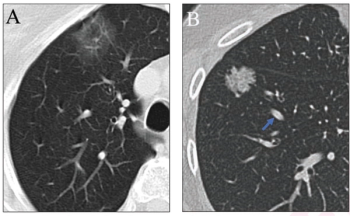
In a computed tomography (CT) study assessing over 450 patients who had lung adenocarcinoma resection, researchers noted zero recurrence at five years and 97.7 percent recurrence-free survival at seven years for patients with resected pure ground glass nodules.
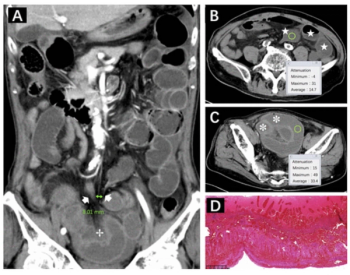
Demonstrating an 81 percent AUC, 99 percent specificity and a 98 percent positive predictive value, increased attenuation of intestinal contents was one of four CT findings deemed to be an independent predictive factor for bowel necrosis in patients with closed-loop small bowel obstruction.
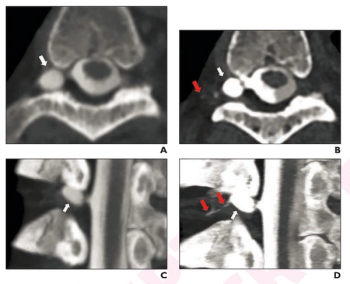
In a comparative study of energy-integrating detector CT myelography versus photon-counting detector CT (PCD-CT) myelography for the detection of cerebrospinal fluid-venous fistulas (CVFs) in cases of spontaneous intracranial hypotension, PCD-CT myelography demonstrated 10 to 19 percent higher sensitivity rates with reviewing radiologists.